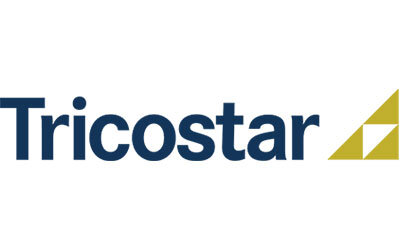The Courts: Adapting to New Technologies
Most of us have long since discovered we can get more done by carrying out tasks like banking and shopping online. In contrast, courts are often lagging behind somewhat; still utilising paper and print more than is necessary. The way that the courts operate is disproportionately costly, time consuming and frustrating for many involved.In March 2014, the Justice Secretary announced an injection of funding aimed at bringing the benefits of modern technology to the judicial system. Over a period of five years, around £75 million will be made available each year so that the criminal and civil courts can speed up their processes and deliver a high standard of justice with greater speed. Even stopping short of fully virtual courtrooms, promising innovations have already been initiated in a number of areas, including the following.
Better IT Infrastructure
At the moment, the courts are limping along using an outdated systems that are dependent on manual data entry. The success of any attempt to broaden access using IT systems would be entirely dependent on bringing existing systems fully up to date. Indeed, the overarching goal of the proposal is to enable staff, justice agencies and the Judiciary to work on one coherent system, aspects of which will also be accessible by the public.Aspects of the suggested changes have already been trialled by the Crown Prosecution Service in England and Wales. In 2011, prosecutors began to use tablet computers in court as a way of accessing key evidence and documents required during trials. The scheme was such a success that it gave rise to the idea of ‘paperless policing’, allowing police officers to cut back the requirement for paperwork in favour of evidence from wearable video cameras and electronic notes made in real-time.
Secure Mobile Working
The logical progression from paperless policing is the paperless court, enabling professionals involved in the judicial process to bypass physical documentation entirely. A pilot scheme for this approach began in 2013, and since then approximately six fully paperless trials have been held. In place of the usual bulky evidence folders, jurors, judges and counsel all use tablet computers.Although still in its early days, this pilot is showing signs of success, albeit not without the occasional hitch. In February this year at London’s Southwark Crown Court, judge Michael Gledhill inadvertently highlighted one of the challenges of this system when he almost read out his full password in front of a packed courtroom. This usefully demonstrates that the human factor is frequently the weakest link in a chain carefully designed to enable secure mobile working.
Online Settlement of Civil Disputes
One of the most exciting implications for the public is the potential of IT systems to change the way civil disputes are managed, especially small claims. Civil cases worth less than £10,000 take up 70% of the capacity of English and Welsh courts, so there is considerable potential for streamlining their process so that disputes may be resolved more quickly and cheaply. The Civil Justice Council, which is concerned with the modernisation of the civil judicial system, believes that online dispute resolution is the most promising model.Surprisingly, this process isn’t without precedent: eBay already has a highly effective resolution process in place, and this settles 60 million cases each year. But whatever approach is adopted, civil settlement is likely to be run on a self-service basis, where claimants can initiate proceedings by filling in an online form and making payment over the internet. If this sounds like the recipe for a more litigious society then you might be too pessimistic, since it is hoped that simplifying the civil litigation process will result in fewer cases actually progressing as far as a court hearing.
Electronic Case Files and Court Bundles
Not only can digitisation help jurors and court personnel find relevant information with ease, it can also streamline the process of compiling a court bundle. This is a gigantic task: bundles contain all relevant documentation such as affidavits, expert reports and statements of the issues requiring determination. Bundles are mandatory for any case appearing in court, and usually run to several hundred pages.Much time is involved assembling the bundle, numbering the pages and making copies, and if this is not achieved in time, the case may be adjourned. IT systems now exist capable of compiling several copies of a 5,000-page bundle in under 5 minutes.For more information about the court document bundling software that we provide at Tricostar, please call +44 (0)208 292 2660 or contact us online.
